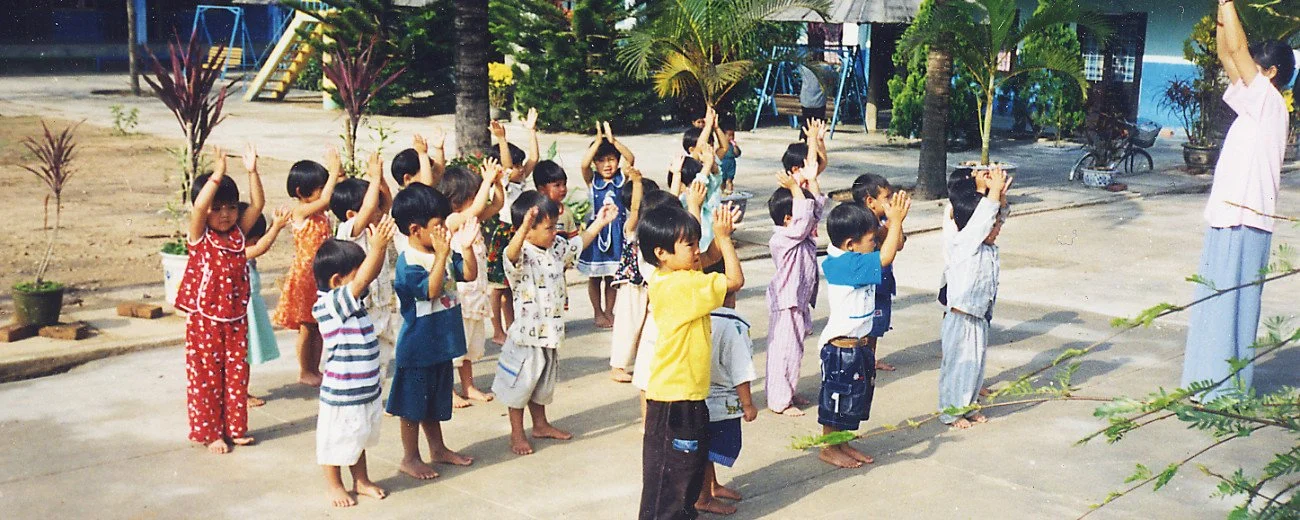How we work
In 1996, the subsequent founders of Project Return led a group of young people who had been adopted following the war of 1963-1975 on a return visit to Vietnam. This war had left many very small children without care through the death of one or both parents, abandonment or a simple lack of food and shelter. Out of this visit was born Project Return, which became a UK Registered Charity.
The full story is told in Project Return: The First Fifteen Years by Cynthia and Terry Gough. The book contains many full colour photographs by the authors. All profits from the sale of this book support the work of Project Return. A PDF of the book is also available (£5), get in touch here to request a copy.
Through people with local knowledge Project Return identifies where communities and individuals would benefit from our support. The same trusted people often oversee the delivery and it is this direct relationship with individuals and communities that makes Project Return's work so effective.
Once we feel that a family or community is self-sufficient, we will move on to help elsewhere. We keep in touch with families we have helped in the past, as well as those currently receiving support.
Administration, Monitoring and Finance
Project Return is managed by a board of trustees which meets 3 times a year in the UK. Administrative costs are kept to an absolute minimum: the cost of an annual visit of one trustee to Vietnam is met from central funds and this constitutes the main administration expenditure.
One or two of the trustees travels to Vietnam every year to review the active projects and to meet with the sponsored students. During these visits, new projects are also discussed with our contacts in Vietnam. A written report is then provided to the trustees for discussion and the proposed new projects are evaluated. Two newsletters are published annually giving an outline of recent work undertaken and a more detailed description of particular projects.
Project return receives no support from governments and is entirely supported by donations from individuals, churches, foundations and other organisations. There are small ear-marked funds from legacies. Individuals or groups support education of specified children of all ages. Occasional fundraising events are held.



